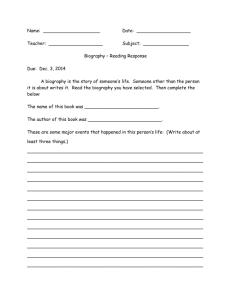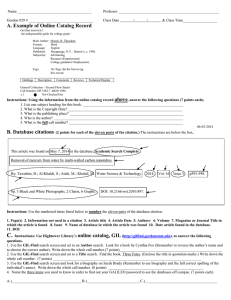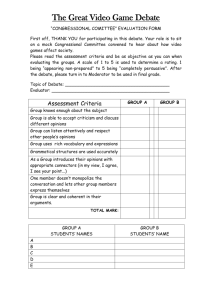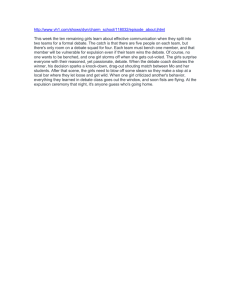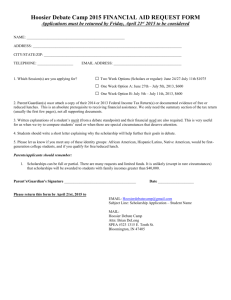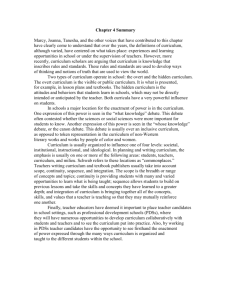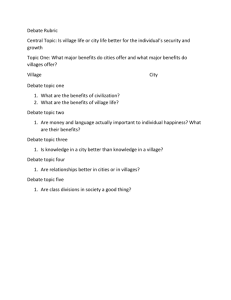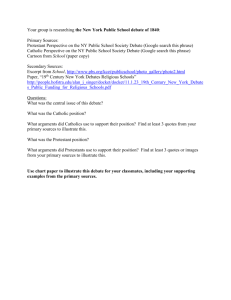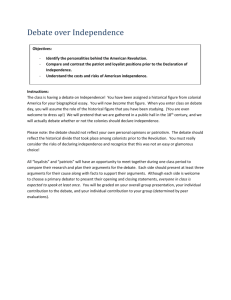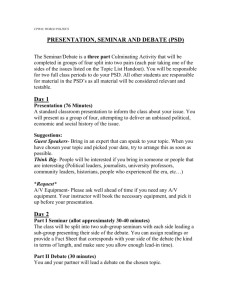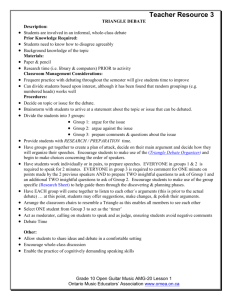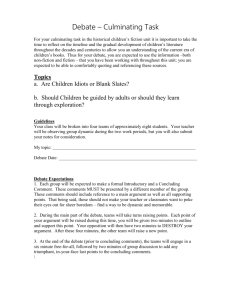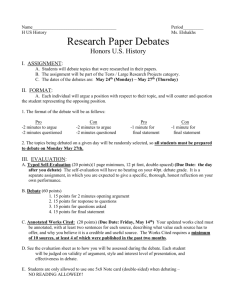Chapter 3
advertisement
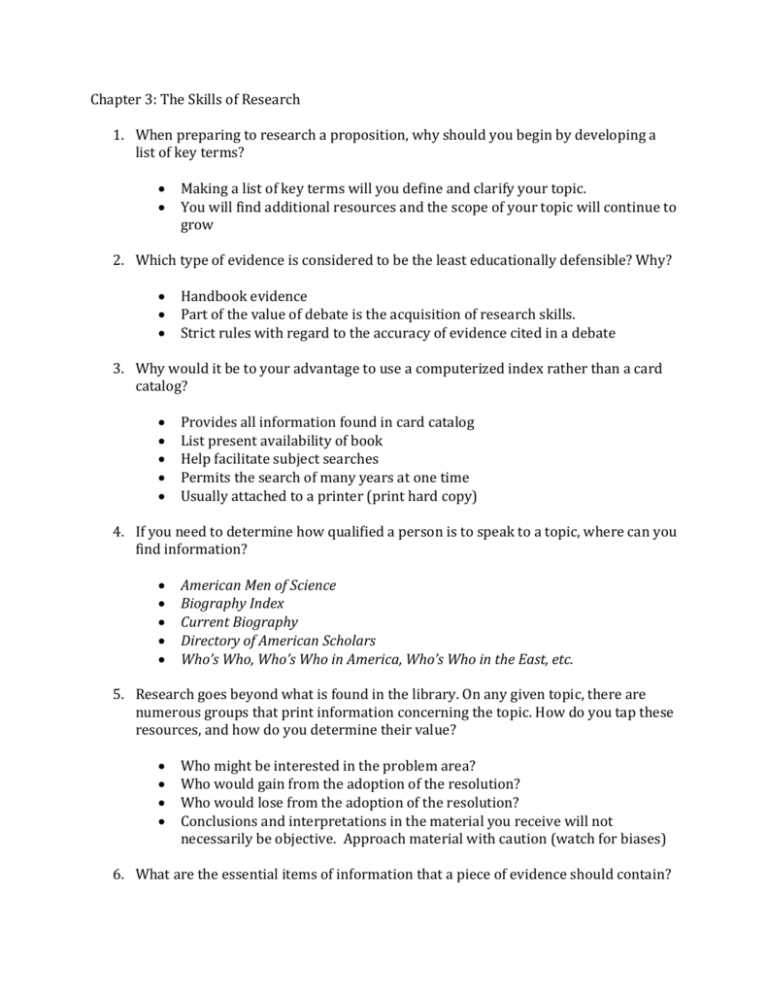
Chapter 3: The Skills of Research 1. When preparing to research a proposition, why should you begin by developing a list of key terms? Making a list of key terms will you define and clarify your topic. You will find additional resources and the scope of your topic will continue to grow 2. Which type of evidence is considered to be the least educationally defensible? Why? Handbook evidence Part of the value of debate is the acquisition of research skills. Strict rules with regard to the accuracy of evidence cited in a debate 3. Why would it be to your advantage to use a computerized index rather than a card catalog? Provides all information found in card catalog List present availability of book Help facilitate subject searches Permits the search of many years at one time Usually attached to a printer (print hard copy) 4. If you need to determine how qualified a person is to speak to a topic, where can you find information? American Men of Science Biography Index Current Biography Directory of American Scholars Who’s Who, Who’s Who in America, Who’s Who in the East, etc. 5. Research goes beyond what is found in the library. On any given topic, there are numerous groups that print information concerning the topic. How do you tap these resources, and how do you determine their value? Who might be interested in the problem area? Who would gain from the adoption of the resolution? Who would lose from the adoption of the resolution? Conclusions and interpretations in the material you receive will not necessarily be objective. Approach material with caution (watch for biases) 6. What are the essential items of information that a piece of evidence should contain? Topic heading (tag or slug) Citation Author’s qualifications Evidence quotation itself 7. The reading and research skills learned for debate can be applied to other areas as well. Describe some of these other applications. Schoolwork (writing term or research papers)


